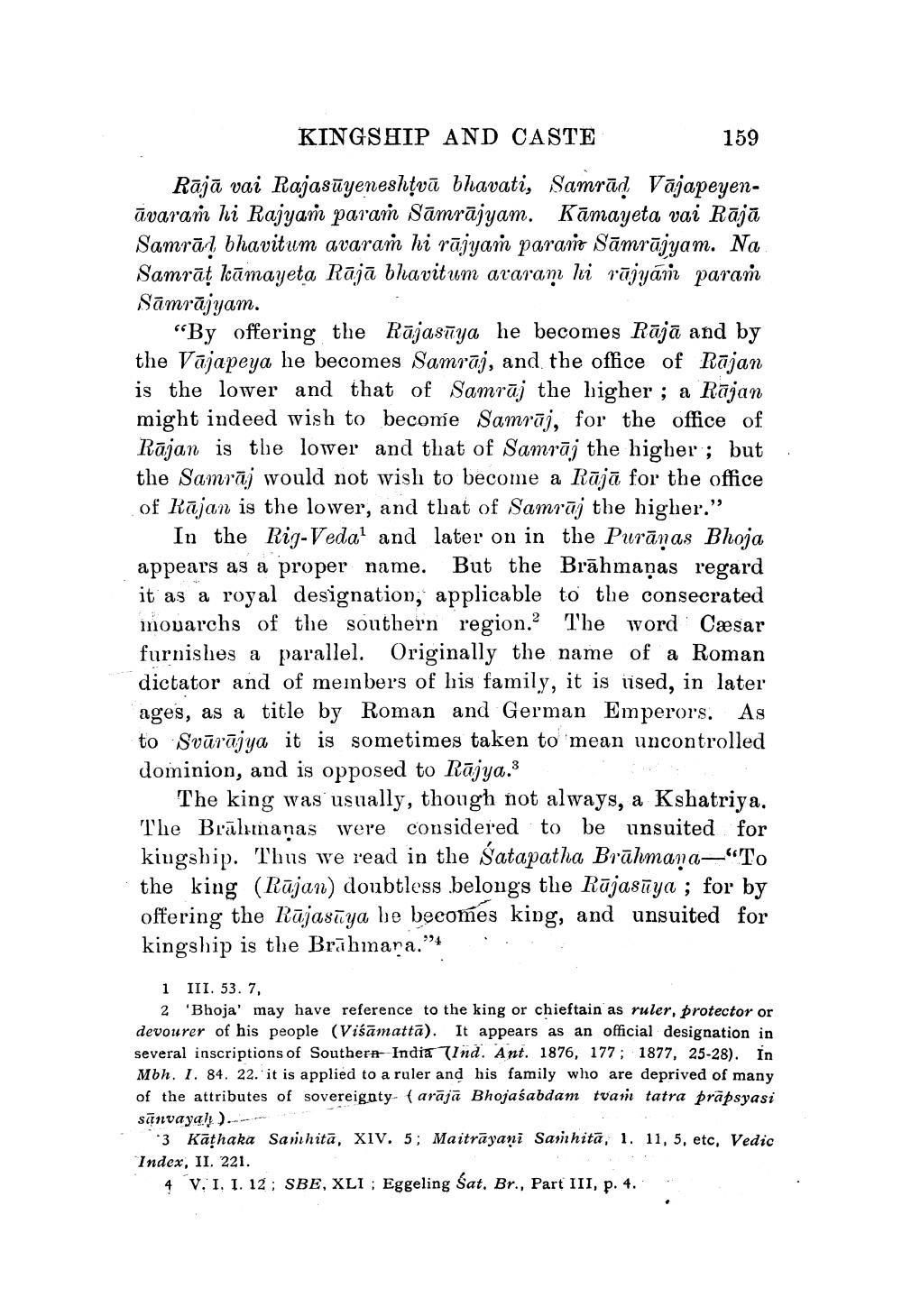________________
KINGSHIP AND CASTE
159
Rājā vai Rajasūyeneshtvā bhavati, Samrād. Vājapeyenāvaraṁ hi Rajyam param Sāmrājyam. Kāmayeta vai Rājā Samrā bhavitum avaram hi rājyam pararit Samrājyam. Na Samrāt kāmayeta Rājā bhavitum avaram hi rājyam param Sāmrajyam.
"By offering the Rājasūya he becomes Rājā and by the Vajapeya he becomes Samrāj, and the office of Rājan is the lower and that of Samrāj the higher ; a Rajan might indeed wish to become Samrāj, for the office of Rājan is the lower and that of Samrāj the higher ; but the Samrāj would not wish to become a Rūjā for the office of Rājan is the lower, and that of Samrāj the higher."
In the Rig Vedat and later on in the Purānas Bhoja appears as a proper name. But the Brāhmanas
manas regard it as a royal designation, applicable to the consecrated inovarchs of the southern region. The word Cæsar furnishes a parallel. Originally the name of a Roman dictator and of members of his family, it is used, in later ages, as a title by Roman and German Emperors. As to Svārājya it is sometimes taken to 'mean uncontrolled dominion, and is opposed to Rājya.
The king was usually, though not always, a Kshatriya. The Brāhmaṇas were considered to be unsuited for kingship. Thus we read in the Satapatha Brāhmana—“To the king (Rūjan) doubtless belongs the Rūjasūya ; for by offering the Rūjasūya be becomes king, and unsuited for kingship is the Brāhmara."
1 III. 53. 7,
2 'Bhoja' may have reference to the king or chieftain as ruler, protector or devourer of his people (Visāmatta). It appears as an official designation in several inscriptions of Southern India Ind. Ant. 1876, 177, 1877, 25-28). In Mbh. I. 84. 22. it is applied to a ruler and his family who are deprived of many of the attributes of sovereignty- (arājā Bhojaśabdam tvam tatra prāpsyasi sānvayah )..
3 Kathaka Savhitā, xiv. 5; Maitrāyani Samhitā, 1. 11, 5, etc, Vedic Index, II. 221.
4 V. 1. I. 12; SBE, XLI ; Eggeling Sat, Br., Part III, p. 4.




